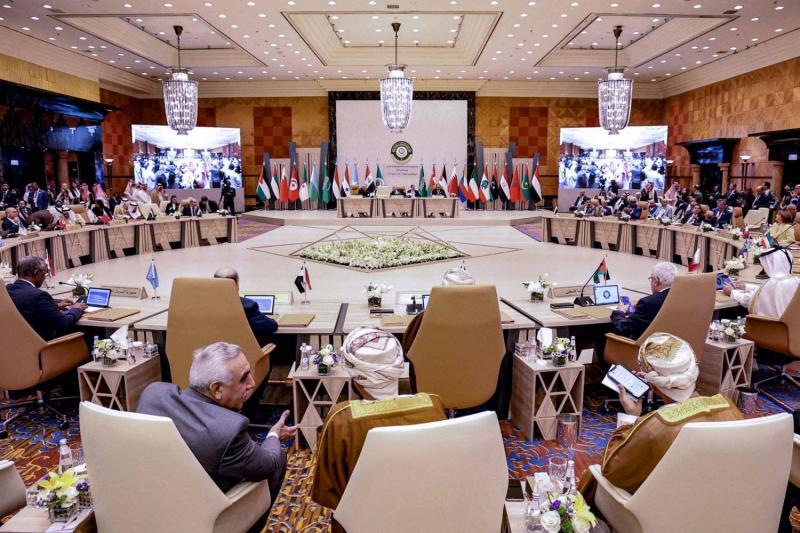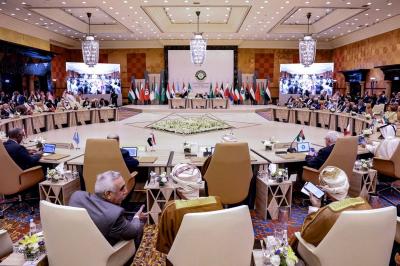The Saudi capital, Riyadh, will host an emergency Arab summit on November 11, to discuss the situation in Gaza. Diplomats and observers are counting on this summit to reach a unified Arab opinion regarding the ongoing conflict between Israel and Hamas, to push for increased aid, and to halt the escalation in the Gaza Strip, which has been experiencing ongoing airstrikes from the Israeli army for 23 days, resulting in the deaths of over 8,500 people and thousands of injuries.
The General Secretariat of the Arab League announced it has received an official request from both Palestine and the Kingdom of Saudi Arabia to convene an extraordinary session of the Arab League Council at the summit level, chaired by Saudi Arabia, which currently holds the presidency in Riyadh. The Assistant Secretary-General of the Arab League, Ambassador Hosam Zaki, noted that the Secretariat received an official request on Monday from Palestine and Saudi Arabia to discuss the ongoing Israeli aggression against the Palestinian people in Gaza since October 7.
Zaki pointed out that the Arab League Secretariat has circulated the Palestinian and Saudi memorandums to the member Arab states. The permanent representative of the State of Palestine to the Arab League, Mohannad Al-Aklouk, submitted a memorandum based on a request from President Mahmoud Abbas to hold an extraordinary session of the Arab League Council at the summit level. Al-Aklouk stated that this request from Palestine came after coordination with Saudi Arabia as it holds the current presidency of the Arab summit, aiming to convene the emergency Arab summit "to discuss the brutal Israeli aggression against the Palestinian people in Gaza and the West Bank, including East Jerusalem."
The summit also seeks to explore ways to assist the Palestinian people in facing these political, humanitarian, economic, and social challenges, and to discuss Arab action at the international level to end the Israeli occupation of the Palestinian territories occupied in 1967, with East Jerusalem as its capital, in accordance with international law and relevant international legitimacy resolutions, as well as the Arab Peace Initiative of 2002.
It is clear that this meeting sends a strong message of solidarity to the Palestinian people, both in Gaza and the West Bank, affirming that the Palestinian people are not alone and that there is Arab solidarity with them during these harsh conditions. It also underscores the collective Arab rejection of Israel’s policies of "collective punishment" against more than 2.3 million residents of the Gaza Strip. The summit is expected to reaffirm that Arab leaders and their peoples support the Palestinian people’s right to defend their rights and establish a Palestinian state on the borders of June 4, 1967, with East Jerusalem as its capital.
The meeting will emphasize the need to increase humanitarian aid entering the Gaza Strip via the Rafah crossing and to establish an “Arab bridge” to enhance that humanitarian assistance. The Arab summit will adopt a collective stance rejecting the forcible displacement of Palestinians from either Gaza or the West Bank and will also stand against calls for the "liquidation of the Palestinian cause."
In conclusion, the Riyadh summit will serve as an opportunity to articulate a collective Arab opinion regarding the Arab vision for the political trajectory of the current conflict and to prevent its expansion within the region.




